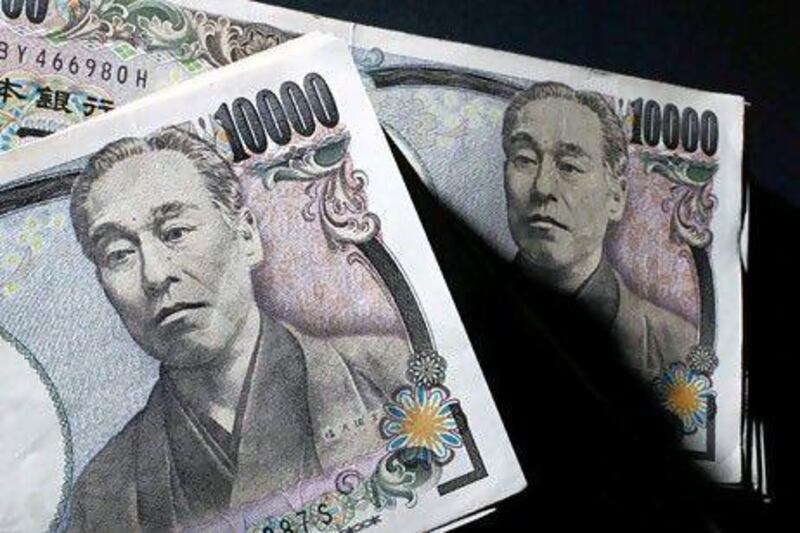The yen gained ground in late Asian trade yesterday after the Bank of Japan held off new monetary easing measures, as traders look ahead to the central bank's next policy meeting for signs of fresh stimulus.
The dollar bought ¥81.20 while the euro fetched ¥103.96, against ¥81.40 and ¥103.99 in New York trade on Monday.
The central bank yesterday kept rates unchanged, but a statement, that warned over Japan's slowing economy, hinted at fresh action at its next meeting, said the Mizuho Securities chief market economist Yasunari Ueno.
The statement raised speculation for a further expansion of the asset purchase programme next month, said Mr Ueno.
The central bank said last month it would expand an asset-purchase programme - its main policy tool - by ¥11 trillion to ¥91tn in a bid to kick-start growth as recovery from last year's earthquake and tsunami disaster.
The bank's decision yesterday came days after the front-runner to become Japan's next prime minister pledged aggressive monetary easing to fix the nation's economic woes.
Shinzo Abe,the head of the conservative opposition Liberal Democratic Party, has been widely tipped to unseat Yoshihiko Noda from the premiership in the December 16 polls.
Against the dollar yesterday, the euro was stronger at $1.2782, from $1.2778 in New York, where the unit had dipped on news that Moody's ratings agency had cut France's gold-plated AAA credit grading on the eve of a crucial euro-zone meeting.
"[It] could suggest countries like Spain may be its next target," Kengo Suzuki, a foreign exchange strategist at Mizuho Securities, told Dow Jones Newswires.
The euro won some support as the bloc's finance ministers said they would reach a tentative agreement at their meeting yesterday to distribute a bailout to Greece so the country avoids a messy default.
The dollar was mixed against other Asia-Pacific currencies.






